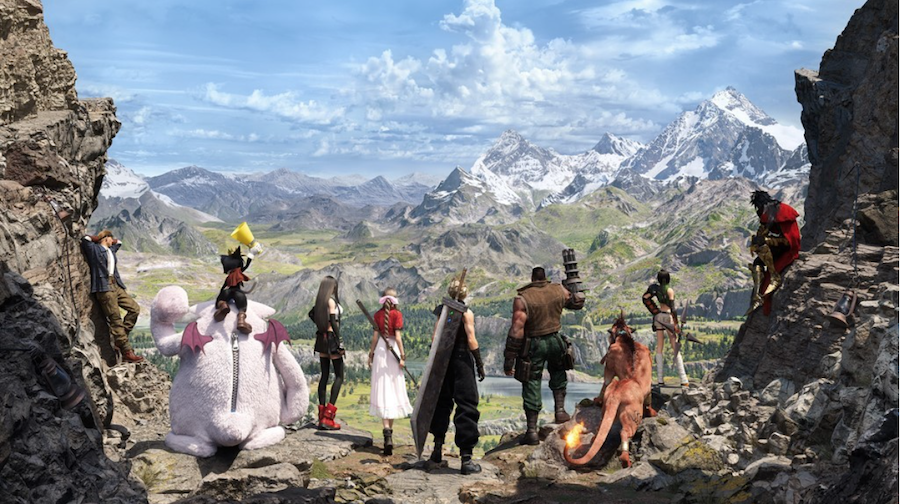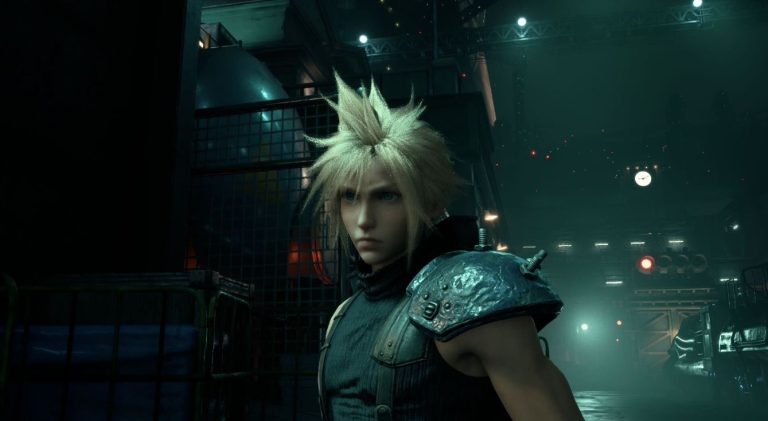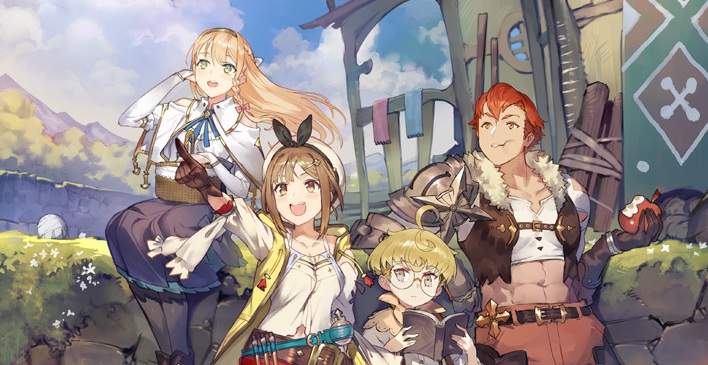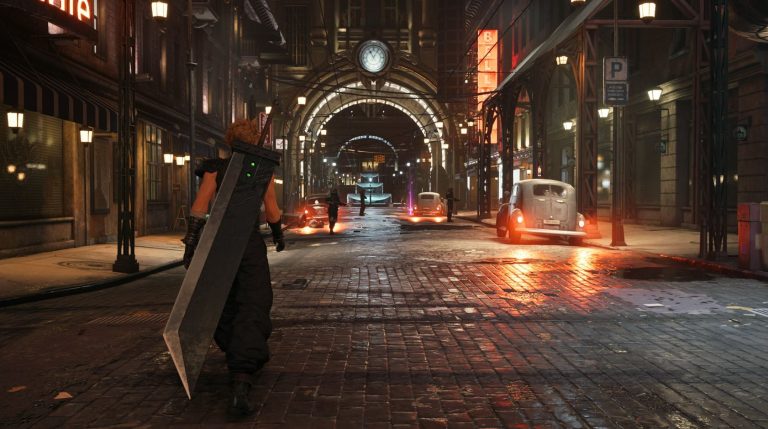Set to release on February 29, Final Fantasy VII: Rebirth is the highly anticipated 2nd installment in Square Enix’s trilogy that sets out to remake and expand upon the 1997 PlayStation 1 hit Final Fantasy VII. The trilogy is taking advantage of advances in technology and game design to offer players new ways to experience the beloved original’s story, including a switch to open-world game design. Final Fantasy VII: Remake (the first entry in the trilogy) was a huge success globally, selling over 70 million copies.
We recently sat down with FFVII: Rebirth’s producer Yoshinori Kitase and director Naoki Hamaguchi to find out about key decisions made during the game’s development, how they are appealing to different types of players, and their opinions on the differences between fans in Japan and overseas.
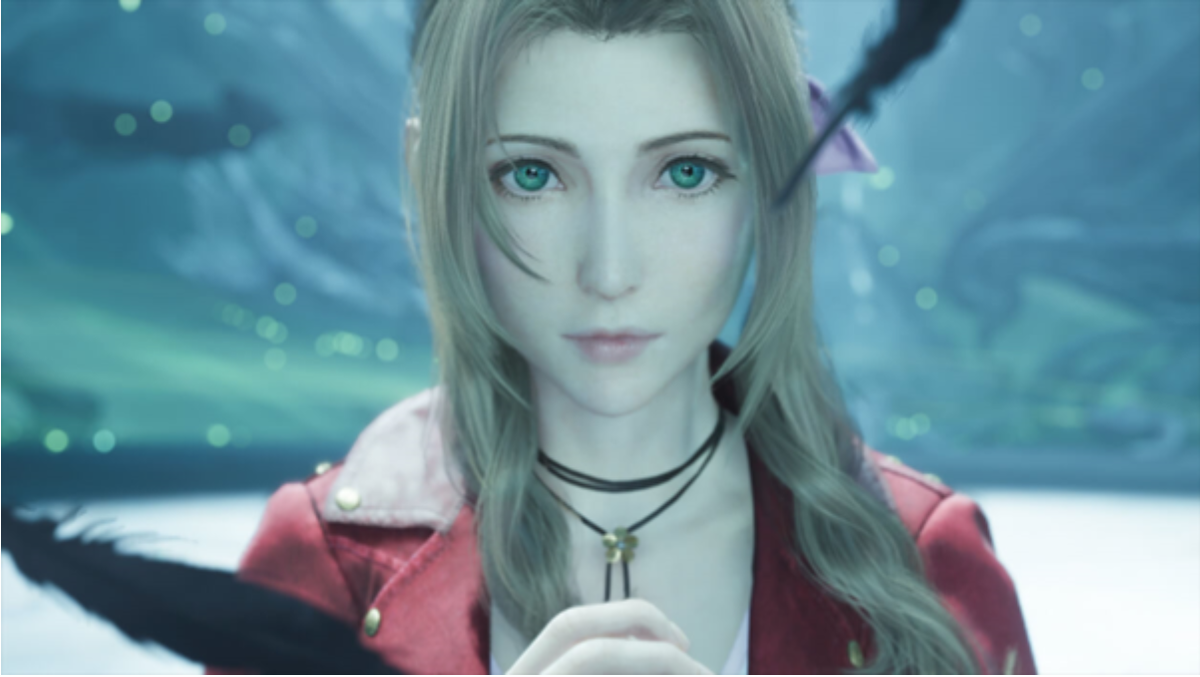
──First of all, congratulations on FFVII Rebirth being awarded 2024’s Most Anticipated Game at The Game Awards 2023. What were the reactions among the team?
Naoki Hamaguchi: We were all truly overjoyed. That said, we felt such a response while we were making the game that we thought we’d get the award, or rather, we believed we could (laughs).
Yoshinori Kitase: (Laughs) I’ll be the modest one then… It’s a great honor to be chosen as the Most Anticipated Game.
── How are you feeling ahead of the game’s release on February 29?
Hamaguchi: We have already finished the game, so there won’t be any delays. We are really looking forward to people playing it on February 29.
── How big was FFVII Rebirth’s development team?
Kitase: We are not that big a team, and we are making the game as an extension of the original Final Fantasy series. But the game’s quality and amount of content are such that they make you wonder just how big the development team was. The level that we achieved exceeds the scale of development.
Hamaguchi: The team was was on the same scale as the other numbered FF titles and AAA games, so we didn’t drastically increase the size of the team. We were able to develop FFVII Rebirth in 4 years after the previous title, so I feel like we were able to directly convert the development time into a quality title without compromising the vision we had at the very start, and I’m truly satisfied with the result.
── The FFVII Remake series has achieved success worldwide. In interviews with the media outside of Japan, you’ve made comments about referencing The Witcher 3: Wild Hunt for aspects like sidequests. Are there any parts of FFVII Rebirth that were influenced by Western games?
Hamaguchi: Indeed, we took inspiration from other companies’ and overseas AAA titles, and The Witcher 3 is a favorite of mine. We also referenced open-world games that have a high degree of freedom, such as The Elder Scrolls V: Skyrim.
── Did the influence of The Witcher 3 perhaps manifest itself in sidequests/side content having more volume?
Hamaguchi: That’s not exactly how I would put it. Players are predominantly focused on the main storyline in FF games, which serves as the major axis for games in the series. So I think we would get a negative reaction if we only worked on adding more side content. Therefore, we think that the freedom of FF lies in keeping the main story at the forefront, while letting players interact with side content as much as they want to.
── So, the main story will dominate.
Hamaguchi: We are certainly influenced by the essence of The Witcher 3, but we are by no means copying its game design. In my mind, what differentiates FFVII Rebirth from other titles is that we wanted to ensure that each bit of side content was unique, such as by creating mini-games that are exclusively for certain quests.
The side content is also very elaborate. If side content is just continuously rehashed with a new look, the player will feel like they’re playing the exact same content even though they’ve made it to a new area, and they will lose the enjoyment of progressing through the game. This is why I designed all the events that occur in each area of the game right at the beginning of development. This means that each time you arrive at a new location, you will be presented with new ways of exploring and new minigames etc. So even though we have a huge amount of side content, I expect it will always be exciting for the player.
── I see. You come from a programming background, but for FFVII Rebirth, you were also fully involved in the game design? (to Hamaguchi)
Hamaguchi: I oversaw most of it.
Kitase: After all, he’s the director (laughs).
Hamaguchi: (Kazushige) Nojima and (Tetsuya) Nomura were responsible for the scenario. However, I was in charge of working out how to incorporate and implement the scenario into the game, which is where my background in programming proved valuable.
── What strengths do you have that can’t be found in Western games?
Hamaguchi: In FFVII Rebirth, we preserved the appeal of Final Fantasy by making a clear distinction between the main story and side content. In many recent titles, the line between main story and sidequests has become blurred, and you can end up thinking, “Which am I playing at the moment?” I don’t think this is a bad thing, and there are even good aspects to this approach, but I don’t think it’s suitable for FFVII Rebirth. We have developed this game so that players can easily distinguish the main story from the side content and decide what they want to play and to what degree.
── It is indeed clear that the storyline is what everyone wants from the FFVII series.
Hamaguchi: That’s right. When we wrote the proposal for FFVII Rebirth and presented it to the company, our initial concept was, “To implement extensive side content, but make it so that players can have the same playing experience as in the previous title even if they only follow the main storyline.” In other words, you don’t have to play the side content at all. For example, when you finish the main story in Kalm once, you can choose whether to play through the side content scattered around the world map or to ignore it and carry on to Junon to watch Rufus’s ceremony. However, I think some people will want to go back to previous areas after advancing in the story, which is why we made it so that all side content remains available even if the main story has progressed.
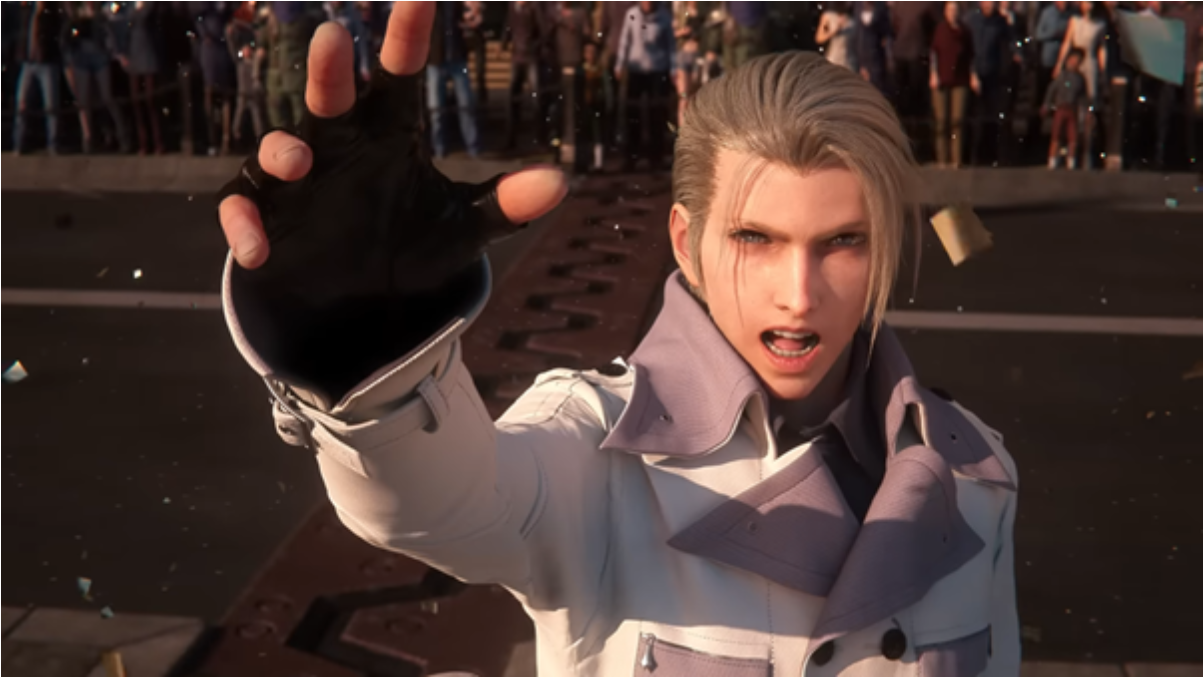
── Compared to FFVII Remake, FFVII Rebirth will have a lot more variety in terms of gameplay. Is this why you introduced level scaling? (If you select “Advanced,” the strength of the enemies is automatically adjusted according to your level.)
Hamaguchi: That’s exactly right. In recent FF titles, characters level up as the story progresses, making it easy to adjust the difficulty as the levels are within the range that the developers had in mind. However, FFVII Rebirth has more side content than the main story. This makes it hard to control the difficulty, and while some players will be pleased that the main storyline bosses will be too weak after they have explored every inch of the world map, there are naturally other players who will be unhappy about this. For this reason, we talked about implementing a function that adjusts the game difficulty according to the player’s level in the early stages of development.
── Was that difficult?
Hamaguchi: Of course, it was difficult, but we worked on it while considering it a necessity. On the Advanced setting, all the main story bosses will feel challenging even if you have completed all the side content. On the other hand, people who don’t mind (the main story bosses being weaker) can choose Easy or Normal and progress quickly through the game. The theme of FFVII Rebirth is “choice,” i.e. choosing whether you will play the side content or not, and choosing a difficulty level that suits you. We aimed to enable users to make their own decisions throughout the game and play it in their own way.
── It’s interesting how you can choose your own style of play. Returning to the previous topic a little, you have been interviewed by media from all over the world thanks to the FFVII series’ global success. Are there any questions that foreign media are forthcoming with than Japanese media?
Kitase: Actually, the question I just answered about the games that have inspired me is frequently asked by the international media. In Japanese interviews, if we mention specific titles, we risk creating the misunderstanding that we are simply copyingother games, so we try not to say too much. However, I get the impression that overseas media are interested in finding out about your roots as a creator, such as what you absorbed and how you nurtured your creativity throughout your life. We are also more likely to answer if the question is asked from that kind of perspective (laughs)… So, I thought that the question near the beginning of this interview was unusual.
── Thank you for doing your best to answer it! (laughs) In terms of the community, I get the impression that the FFVII Remake series has formed a large fandom overseas and has more points of engagement than before. Are there any cultural differences between the Japanese and overseas fandoms?
Hamaguchi: In Japan, it is easy to attract attention with heroines like Tifa and Aerith, but overseas, Sephiroth is extremely popular.
── Oh, yes, Sephiroth is quite popular in Europe and America.
Hamaguchi: Yes, he gets a lot of attention and notoriety as a villain, and I can sense “a difference in temperature” in how he’s received in Japan and overseas in this respect. In this game, when Sephiroth burns Nibelheim to the ground, there is a slightly lonely look on his face as he breaks into a grin. So, I’m looking forward to how people will react to these more human aspects of Sephiroth.
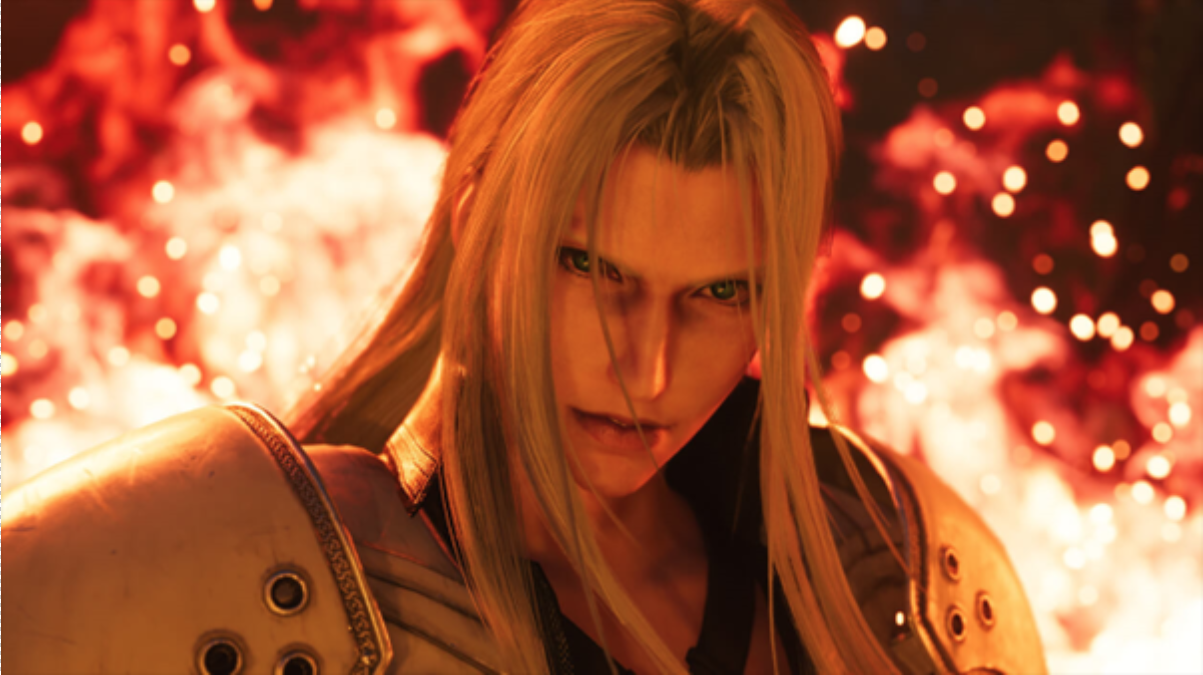
── The recent Final Fantasy VII: Evercrisis featured a young Sephiroth, which has contributed to the image of a “human Sephiroth.” On to our final question we are living in a time where the gap between fans and developers has narrowed due to social media, and it is possible to instantly receive all kinds of feedback. What kind of messages from fans make you happy?
Hamaguchi: The other staff and I read online comments more than players probably think we do. We receive both positive and negative feedback. If we only received positive opinions, then I think the development side would become lukewarm, so I think it is good to receive a pep talk from time to time. We are happy to receive comments and reactions from people as it fires us up.
── So, “It’s okay even if not all the feedback is good.” A courageous stance.
Hamaguchi: Is it? (laughs)
Kitase: I think that the good thing about the FFVII Remake trilogy is that users can imagine and discuss things with each in between releases, so we would be happy if they continued to share their thoughts about the next installment after FFVII Rebirth’s release. We just don’t want people to analyze things so much that they end up predicting what will happen (laughs), but we even enjoy that as we work on the games.
Hamaguchi: It has become easier to communicate with players, but we haven’t been able to hold fan events and the like yet.
Kitase: This goes back to our previous conversation about the differences between Japan and overseas. When Hamaguchi and I attended overseas events like Paris Games Week, I felt there was a difference in the interactions with fans compared to in Japan.
Hamaguchi: Due to the coronavirus pandemic, many events were cancelled, and we haven’t done anything in Japan since The Tokyo Skytree event to mark the anniversary of FFVII Remake’s release (SKYTREE in MIDGAR FINAL FANTASY REMAKE). If there is demand, we would like to hold an event where we can directly interact with fans, and this is currently under consideration to be included in future policies.
── If you hold an event, we would be happy to attend! Thank you very much.
Final Fantasy VII: Rebirth is scheduled to be released on February 29 for the PS5.
[Writer, Editor: Yuuki Inoue]
[Interviewer, Editor: Ayuo Kawase]
[Translator: Verity Townsend]
[Translation Editor: Amber V]
The original Japanese interview can be found via Automaton Japan.
© SQUARE ENIX

